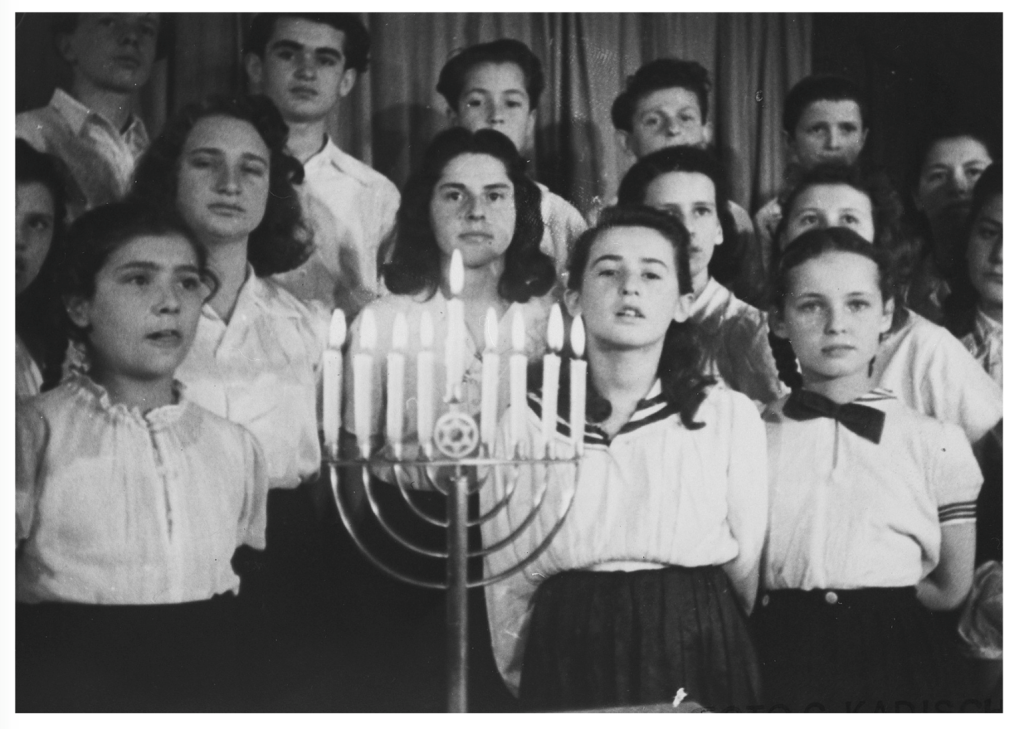DECEMBER 2022
For this month’s article, we have asked some of our survivors in PHA to share their memories of Hanukah.
To learn more about our Arizona survivors,
see https://phxha.com/wp-content/uploads/2022/12/ID-Cards_with-cover.pdf
Rise Stillman shared: “I wish I had some beautiful and interesting Hanukah memories to share. So, I can only tell you what I recall. Instead of candles, my father scooped out potatoes, put a wick and oil in, lit the candle, as we gathered to hear the prayers and explain the miracle of Hanukah. As a child, I did not realize that we were too poor to have a menorah and candles. I thought everyone used potatoes for candles.”
Freida Allweiss was born in 1933 and lived in the town of Chortkov*, Poland, until 1941 when she was 8 years old. Her parents were secular and Zionist Jews; they never followed religious practices – except for Hanukah. Her parents believed that Hanukah was not a religious holiday. But they would always tell her the story of the Maccabees.
She recalls going to a Jewish kindergarten in her town. The teacher was her aunt, her mother’s sister, so Freida attended for free. She remembers the Hanukah celebrations at this kindergarten, when they lit the candles and dressed up in costumes.
At home, her mother made latkes [potato pancakes] which they ate with smetana [sour cream]. They always invited the grandparents, aunts, and cousins to the celebrations. At home they would light the candles and she would get Hanukah ‘gelt’ [money]. She would play the dreidl [spinning top] game but does not remember if they played for coins.
They celebrated Hanukah each year – until the Russians came into her town in 1939. Since religion was banned under the Communists, they could no longer celebrate this tradition. But even when they escaped to Uzbekistan, her parents continued to tell her the Hanukah stories.
After the war, they eventually made their way to the American Zone in Germany and lived in a DP camp. [Displaced Persons] At the DP camps, schools were set up for all the children and Freida attended. Of course, at these schools they celebrated all the holidays- including Hanukah. Freida remembers it well.
- Near the cities of Lviv and Tarnopol, which are now in Ukraine
Charlotte Adelman
Charlotte remembers that Hanukah in France was “low-key” because of rampant antisemitism. No one placed the menorah with candles in windows, for example. On the holiday, her parents gave her a few cents for candy, and she loved running to the shop to buy a sweet each day. Her mother made latkes with apple sauce, and they had family and friends over for dinners. After the war, her family didn’t celebrate any religious traditions; because they had lost her mother and other family members, they didn’t keep their faith. Antisemitism was even worse in France after the war. Now Charlotte celebrates Hanukah with her family, but also loves Christmas, as she loves the decorations and lights she sees at churches and all over town.
Werner Salinger told PHA, “My mother and father were not at all religious but were extremely proud of their Jewishness. My mom died of tuberculosis just a year after our arrival in the States. So, my father, who was left with a 7-year-old son to raise in a new country whose language he had to learn, met and married another Jewish refugee woman, Bella Marx, from Munich.
Her parents, Benno and Hedwig Marx, were religious Jews. They were also survivors who had lived through both Dachau and Theresienstadt. In 1946, after a year of rehab in Montreux, Switzerland, they came to live with us in Baltimore. My stepmother had lost contact with her parents during the period 1940-45 and had no idea if they were even alive. So that first Hanukah in 1946 was very special indeed. By that time, I was a 14-year-old teenager and they were probably in their eighties, somehow having cheated death by the Nazis. I remember the joy my step-grandfather exuded as he, for the first time in about seven years, was able to celebrate the joys of Hanukah, re-united with his daughter and a new family, having survived both Dachau and Theresienstadt…….and with a grandson (me) he probably never expected to have.”


